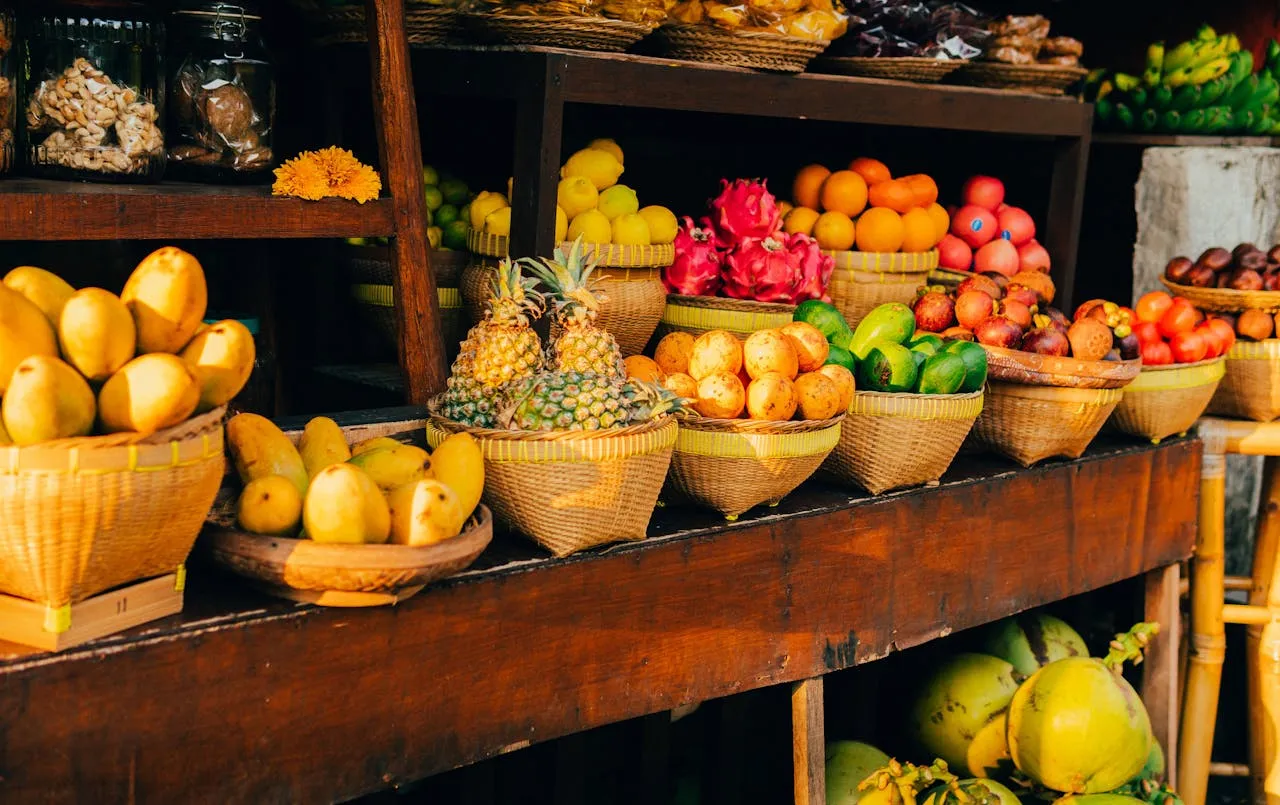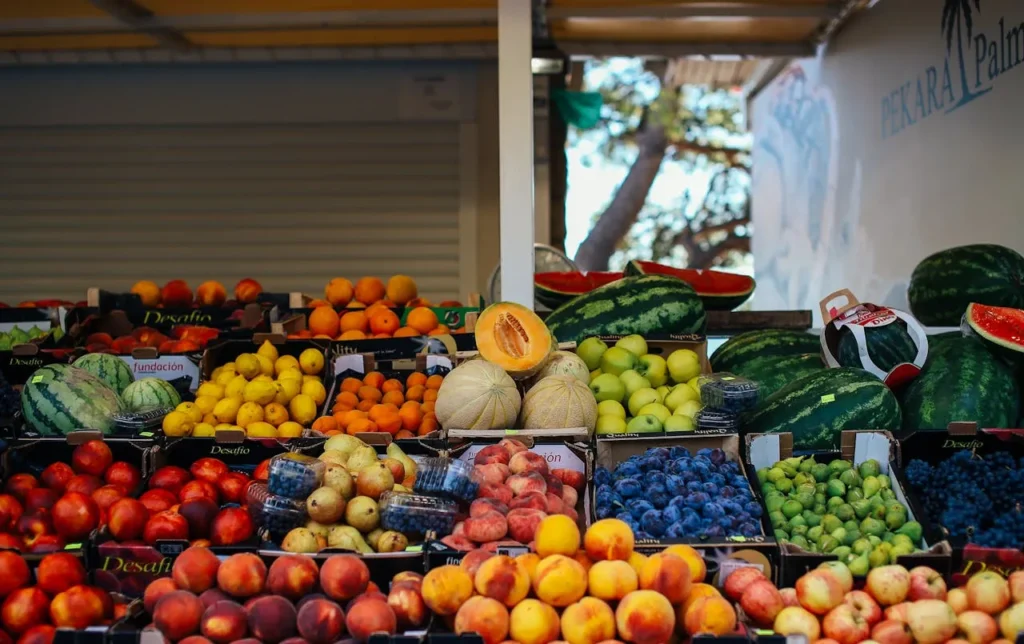
The recently released Vietnam Organic Food Market Size and Share Analysis – Growth Trends and Forecast Report 2025–2033 from ResearchAndMarkets.com highlights a strong outlook for Vietnam’s organic food sector. According to the report, the market is set to expand from US$ 1.04 billion in 2024 to US$ 2.68 billion by 2033, representing a compound annual growth rate (CAGR) of 11.16% during the forecast period.
This growth trajectory is being fueled by rising consumer awareness of food safety and nutrition, increasing environmental concerns, and a stronger push from the Vietnamese government to promote sustainable farming practices. As Vietnam undergoes rapid urbanization and lifestyle changes, the demand for organic, healthy, and naturally sourced products is accelerating, making the organic food industry one of the country’s most promising markets.
Vietnam Organic Food Industry Overview
The foundation of the market’s expansion lies in the shift toward sustainable farming methods that protect biodiversity, improve soil health, and preserve natural resources. Vietnamese consumers are becoming more selective, opting for food that not only supports their personal health but also reduces environmental harm. Organic food is perceived as fresher, more natural, and free from harmful chemicals compared to conventionally grown products.
In addition, food safety concerns remain high among Vietnamese consumers. Past food scandals and the growing visibility of pesticide use in conventional farming have pushed buyers to seek out certified organic alternatives. This demand is particularly strong among health-conscious, urban populations with rising disposable incomes.
The availability of organic food has also improved significantly. Products are now accessible through multiple distribution channels including supermarkets, hypermarkets, specialty health stores, and rapidly growing online retail platforms. This expanded accessibility is helping organic foods transition from niche to mainstream.
Moreover, government initiatives are accelerating industry growth. Authorities have introduced certification systems, subsidies, and training programs to encourage farmers to adopt organic methods. Such measures not only improve the credibility of products but also provide a competitive edge for Vietnamese organic producers in global markets.
Key Growth Drivers
1. Government Support and Policy Initiatives
The Vietnamese government plays an instrumental role in shaping the organic food landscape. By offering financial incentives and subsidies, policymakers aim to reduce the barriers farmers face when transitioning from conventional to organic agriculture. Certification programs ensure quality control, which in turn builds consumer trust.
Awareness campaigns also educate farmers and consumers alike about the benefits of organic farming. These programs encourage more land to be dedicated to organic production and improve overall supply chain efficiency. Collectively, these actions contribute to creating a structured and sustainable organic ecosystem in Vietnam.

2. Rising Health and Food Safety Awareness
One of the most powerful drivers is the population’s heightened concern for personal health and wellness. Consumers are becoming increasingly wary of food contaminated with pesticides, chemical additives, and preservatives. Organic products, which are perceived as safer and more nutrient-rich, have emerged as the preferred choice.
This trend is especially evident in urban centers such as Hanoi and Ho Chi Minh City, where access to health information and higher incomes support a shift toward premium and organic products. As this health-conscious consumer segment grows, so too does the demand for organic fruits, vegetables, dairy products, grains, and beverages.
3. Environmental Sustainability and Eco-Consciousness
Vietnamese consumers are not only concerned with personal health but also with the environmental footprint of their food choices. Issues such as soil degradation, water pollution, and the long-term sustainability of farming practices are shaping consumer preferences.
Organic farming, which avoids synthetic chemicals and emphasizes ecological balance, aligns with these values. Consumers increasingly prefer brands that demonstrate commitment to environmental stewardship, boosting demand for certified organic products.
Challenges in the Vietnam Organic Food Market
Despite positive growth prospects, several structural challenges could slow the sector’s expansion.
1. Lack of Organized Production Chains
Vietnam’s organic food industry currently faces limitations due to fragmented production systems. Many smallholder farmers lack standardized processes to meet organic certification requirements. This results in inconsistencies in product quality and a lack of traceability—factors that are critical in building consumer confidence, particularly for international exports.
The absence of strong and well-coordinated supply chains also restricts scalability, making it harder for producers to respond effectively to rising demand. Strengthening production networks and ensuring traceability will be essential for sustainable growth.
2. Limited Land Allocation for Organic Farming
Although demand is growing rapidly, the amount of land dedicated to organic farming in Vietnam remains relatively small. Organic cultivation represents only a fraction of the nation’s total agricultural land.
This limited availability constrains production volumes and makes it difficult to meet both domestic and international demand. With global organic markets expanding, Vietnam risks losing potential opportunities unless more land is allocated to organic farming. Expanding cultivation areas will not only enhance supply but also improve Vietnam’s competitiveness as a key player in global organic exports.
Opportunities for Growth
Looking ahead, the Vietnam organic food market offers significant opportunities for both local and international investors:
- Export Potential: As global demand for organic products continues to grow, Vietnam could position itself as an attractive supplier, particularly to markets in Europe, North America, and Asia-Pacific.
- Digital Retail Expansion: The rapid rise of e-commerce platforms provides a new avenue for organic food distribution, enabling farmers and brands to connect directly with consumers across the country.
- Value-Added Products: Beyond fresh produce, there is growing demand for processed organic goods such as snacks, beverages, dairy alternatives, and packaged ready-to-eat foods. This opens new revenue streams for producers and manufacturers.
- Tourism and Hospitality Integration: Vietnam’s expanding hospitality sector, including resorts and wellness tourism, offers opportunities to incorporate organic food into menus and experiences, thereby increasing exposure and demand.




